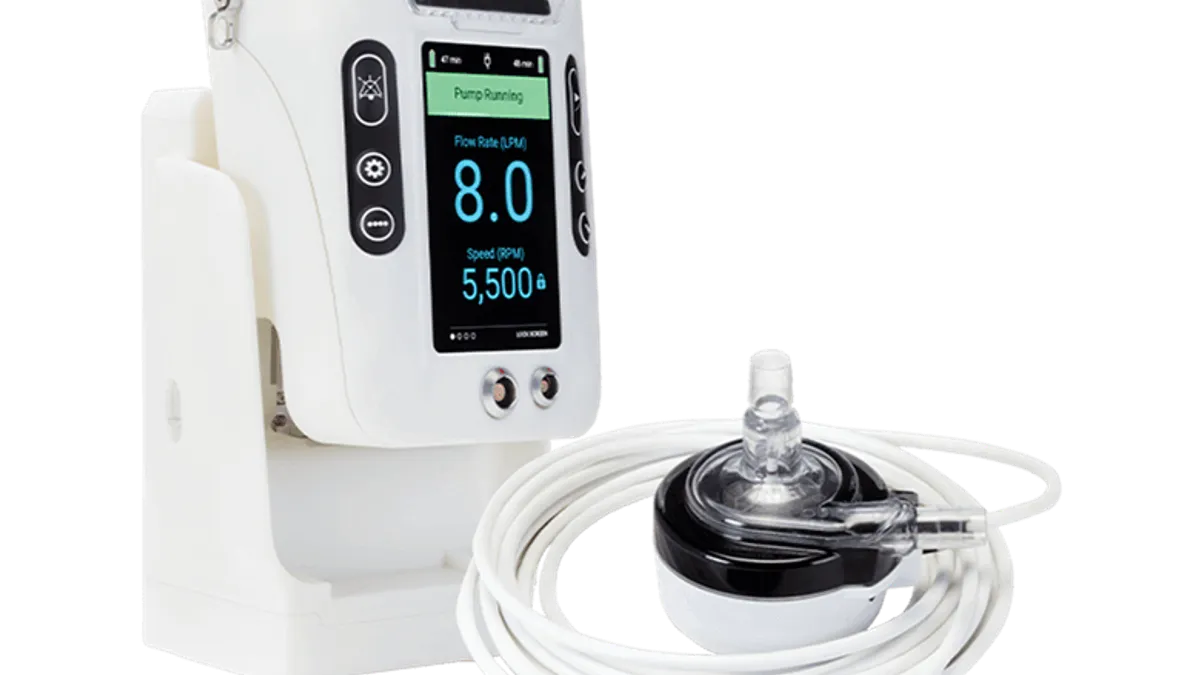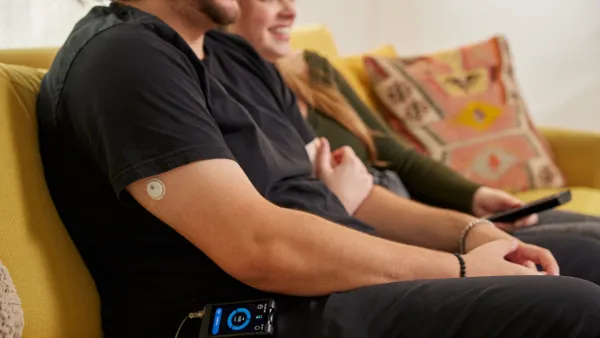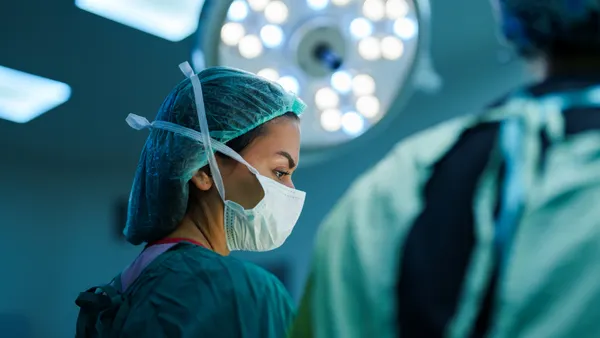Dive Brief:
- Livanova is closing its circulatory support unit to focus on larger, faster-growing cardiopulmonary and neuromodulation opportunities.
- The advanced circulatory support (ACS) business sells the Lifesparc device, which pumps blood during cardiovascular surgeries, but sales have fallen and then flatlined since peaking in 2021.
- In a note to investors, Stifel analysts said they supported the decision to wind down the unit by the end of 2024, predicting it will benefit revenue growth and profitability and increase focus at the company.
Dive Insight:
Livanova expanded its circulatory support offering by acquiring Tandemlife for $200 million upfront in 2018 and received 510(k) clearance for Lifesparc the next year. ASC remained a small part of the broader business, though. Over the first nine months of last year, ASC brought in $30.2 million, almost exclusively in the U.S., and accounted for about 4% of total sales.
The unit has contracted in recent years. ASC revenues fell from $55.5 million in 2021 to $39.3 million in 2022. Stifel analysts expect “basically flat performance” in 2023, despite ASC sales climbing 27% to $11.0 million in the third quarter, compared to a year ago.
Asked in November if ASC was back to “steady strong double-digit growth,” interim Livanova CEO William Kozy explained that the unit benefited from “back order clearance, a few minor catch-ups in purchases in Europe and a one-time adjustment in service revenue” in the third quarter. At that time, Kozy was still working with the ASC leaders to find ways to “further grow and improve profitability in the year ahead.”
Now, Livanova’s leadership has decided to shutter the unit. The company plans to transfer ACS standalone cannulae products and related accessories to its cardiopulmonary unit and stop “operations and service” for the remaining devices, including Lifesparc, by the end of the year. Livanova expects to incur a $110 million charge and restructuring costs of up to $20 million in relation to the changes. Severance expenses account for some of the costs, but Livanova did not say how many employees will lose their jobs.
Exiting ASC will free Livanova of a loss-making business. The unit posted a $23.1 million loss in 2022 and a $11.1 million loss over the first nine months of last year. Livanova predicts closing the unit will improve operating income in 2024, a forecast that informed Stifel’s appraisal of the changes.
“We view the ACS wind down decision positively. Closing the ACS business should be accretive to both top-line growth and profitability, and allow the company greater focus on its neuromodulation and cardiopulmonary businesses,” the Stifel analysts wrote in a note to investors.













